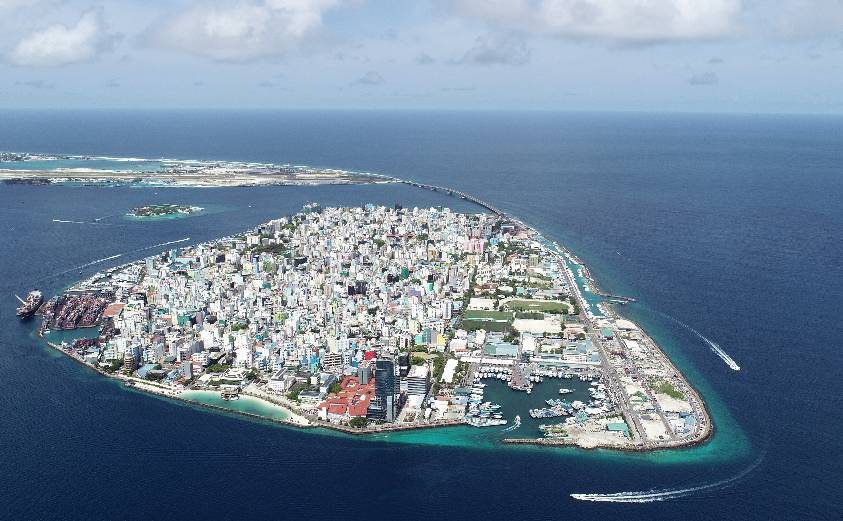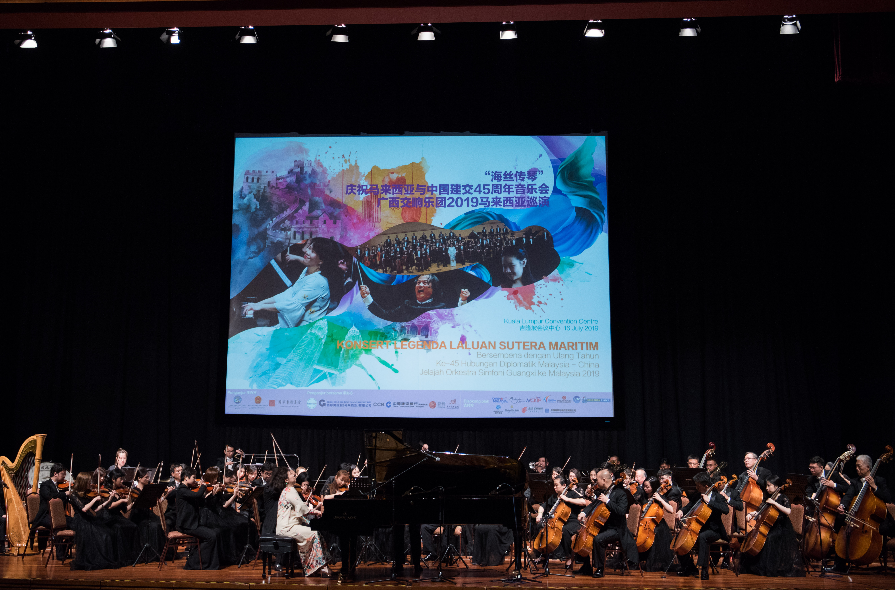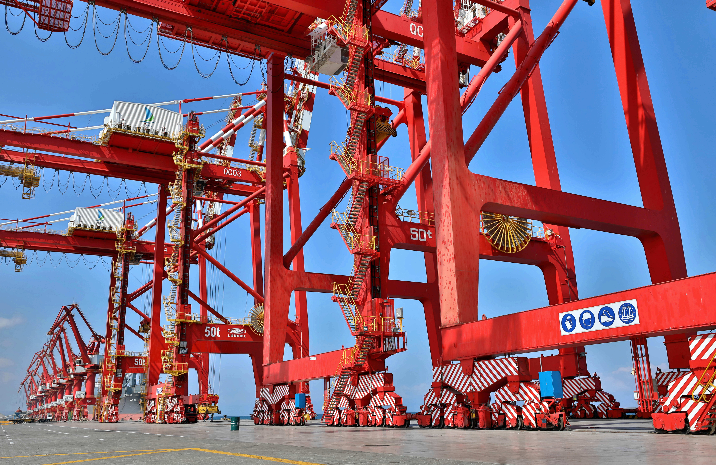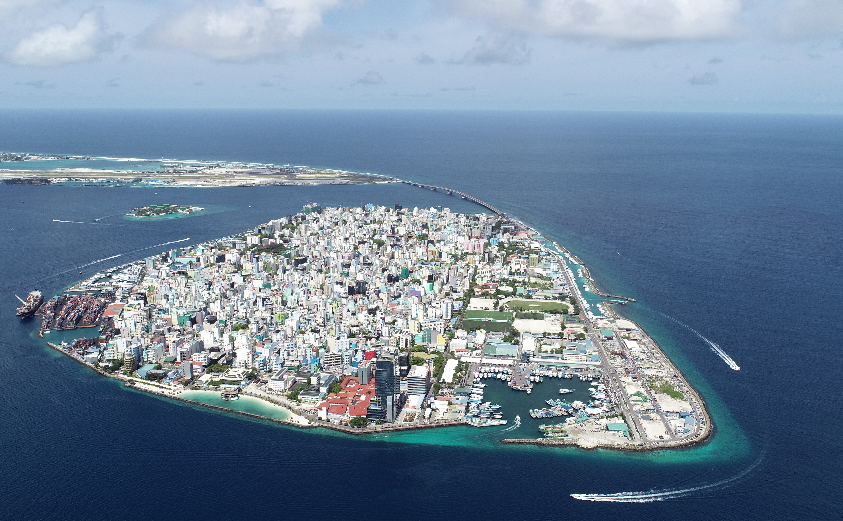
Aerial photo taken on Sept. 1, 2019 shows the panoramic view of Male, capital of Maldives. The China-Maldives Friendship Bridge, the first cross-sea bridge in the Maldives built by a Chinese company connecting the Maldivian capital of Male with neighboring Hulhule Island, was inaugurated on Aug. 30, 2018 and put into use on Sept. 7, 2018. The 2-km-long bridge is an iconic project of the Maldives and China in co-building the 21st Century MaritimeSilkRoad. The bridge makes it possible for locals and tourists to travel between the two islands within five minutes. In one year, the bridge has brought great convenience for local people in their daily life. (Photo by Wang Mingliang/Xinhua)
As early as 2,000 years ago, the Maritime Silk Road started from China's south-east coastal regions, traversing a vast expanse of oceans and seas to countries in Southeast Asia, Africa and Europe.
This trading route that connects the East and the West, had enhanced the exchanges of commodities, people and culture among countries situated on the road.
In order to revive the ancient Maritime Silk Road and bring more benefits to the relevant countries and peoples, China proposed in 2013 that it and countries along the ancient Maritime Silk Road would build together a new Maritime Silk Road of the 21st Century.
Such an initiative draws inspiration both from history and from latest developments in the 21st century. The aim is to inject strong impetus in enhancing political mutual trust, deepening economic cooperation, and promoting cultural as well as people-to-people exchanges among relevant countries through joint cooperation, common development and regional integration. All countries along the Maritime Silk Road are welcome to plan, develop and benefit together from the initiative.

Malaysian pianist Claudia Yang (front) and the Guangxi Symphony Orchestra perform during the "MaritimeSilkRoadLegend Concert 2019" in Kuala Lumpur, Malaysia, July 16, 2019. Musicians from China and Malaysia jointly put on a classical music performance here on Tuesday, playing out melody featuring cultural uniqueness to mark the 45 years of diplomatic relations between the two countries. (Xinhua/Zhu Wei)
Since the initiative was first raised, many countries have actively supported and engaged themselves in the development of the 21st Century Maritime Silk Road or the Silk Road Economic Belt (the "Belt and Road" for short) or both.
On Oct. 24, 2014, twenty-first Asian countries signed the Memorandum of Understanding on Establishing the Asian Infrastructure Investment Bank (AIIB) in Beijing, aiming to finance and facilitate infrastructure constructions for Asian countries along the "Belt and Road".
The MOU specifies that the authorized capital of AIIB is 100 billion U.S. dollars and the initial subscribed capital is expected to be around 50 billion dollars. The paid-in ratio will be 20 percent.
The 21 countries are Bangladesh, Brunei, Cambodia, China, India, Kazakhstan, Kuwait, Laos, Malaysia, Mongolia, Myanmar, Nepal, Oman, Pakistan, the Philippines, Qatar, Singapore, Sri Lanka, Thailand, Uzbekistan and Vietnam.
At the APEC Summit 2014 held in Beijing in November, 2014, China announced that it will contribute USD40 billion to set up a Silk Road Fund to provide investment and financial support to carry out infrastructure, resources, industrial and financial cooperation and other projects related to connectivity for countries along the "Belt and Road".
With more support from other countries and wider coverage across the region, the 21st Century Maritime Silk Road has become an initiative not for one country but for all countries who welcome and support the initiative and are working together closely with each other for economic and social advancement as well as for the welfare of their peoples. The 21st Century Maritime Silk Road has always been and will still be open to all countries along the road.

Photo taken on Dec. 9, 2018 shows the Doraleh Multi-Purpose Port in Djibouti. Djibouti is not only a hub of maritimetraffic and trade between Europe, Asia and Africa, but also an important gateway to Africa for the construction of the 21st-Century MaritimeSilkRoad. In recent years, a number of China-Djibouti cooperation projects have made important contributions to promoting China-Djibouti economic and trade cooperation. (Xinhua/Wang Teng)




 A single purchase
A single purchase









